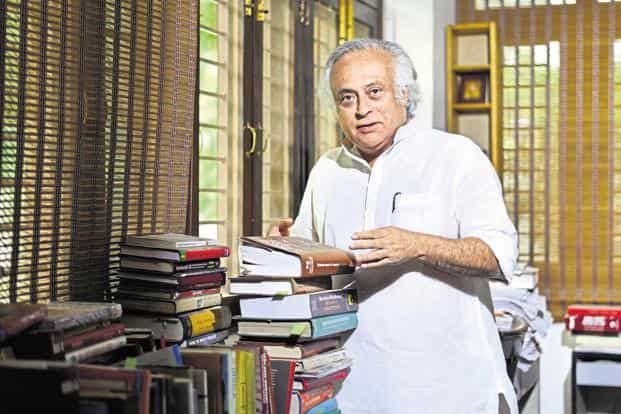
Instead of convening Parliament, making a statement, and taking the country into confidence on China’s incursions into Indian territory—like Jawaharlal Nehru did 58 years ago—prime minister Narendra Modi is “trying to snatch victory from the jaws of defeat” by managing the headlines with drumbeaters and cheerleaders.
So says former Union minister and Congress MP Jairam Ramesh, who has authored an acclaimed book on the much-reviled defence minister V.K. Krishna Menon.
The biggest difference between 1962, when the China invaded India, and 2020, when the Chinese have seized territory, strangled soldiers and redefined the Line of Actual Control (LAC), is that Indian democracy was in full bloom, with a government responsive to the Opposition, media and the people, says the Rajya Sabha member, who coined the portmanteau word “Chindia” in a 2004 book.
When the Chinese invasion happened after the Dalai Lama’s flight to India, independent India was a mere teenager, just 15 years old, unlike now when it is a full-blown adult, all of 73, yet India fared better back then.
On J-POD, the podcast on journalism, Jairam Ramesh says:
“The brightest moment for Indian democracy was in October-November 1962 when it faced an unprecedented external threat. The government did nothing to stifle political opposition, it called Parliament, it listened to the criticism and patiently responded to the criticism, and business went on. That’s how democracies function.
“There was no attempt to stifle the media. There was no browbeating the media. There was no one saying, ‘criticism of the government is anti-national’. Nobody’s nationalist credentials, nobody’s patriotism was being questioned.”
‘Democracy was in full bloom in 1962’
The COVID pandemic has been held out by the Narendra Modi government as an excuse, but calling Parliament, making an authoritative statement, issuing a white paper, and educating the people is the only way to go, says Jairam Ramesh.
“The Chinese invaded India in 1962 in two phases. First on October 20. After 8-9 days there was a pause, and then they resumed on November 16. Krishna Menon had meanwhile resigned as defence minister on November 7.
“In between, a couple of MPs led by N.G. Gore, the great socialist leader, and Atal Bihari Vajpayee, asked Nehru to convene Parliament immediately. Parliament was supposed to be convened around November 18 or 19. Nehru agreed, and Parliament was convened a week in advance on November 11.
“As the Chinese invaded India a second time, Parliament was in session. The media was attacking. Cartoons were coming out in the press. PM Nehru and former defence minister Menon were being attacked and lampooned. The war was going on, we were getting a drubbing, but democracy was in full bloom.”
Instead, he says, Modi is trying to snatch victory from the jaws of defeat by managing headlines and browbeating the media.
“PM doesn’t take Parliament seriously at all. India is becoming an illiberal democracy. We have all the external trappings of democracy—political parties, Parliament, elections—but the soul of democracy has vanished.
There here has been a determined effort to control the narrative, a single minded pursuit, of not the truth but managing the narrative, managing the headlines.
“Nehru went to China only once, in 1954, that’s when he met Mao. Chou En Lai and Nehru met 4-5 times. Nehru put all his correspondence with the Chinese in the public domain. What prevents this government from doing that, rather than briefing their favourite journalists and favourite TV channels.
“No two Indian and Chinese leaders have had the type of intensive and extensive contact as Narendra Modi and Xi Jinping. No two heads of state have spent as much time across geographies—Ahmedabad, Delhi, Wuhan, Mahabalipuram.
“If you can accuse Nehru of being taken in by the Chinese, the accusation can be made against Modi hundred-fold. Nehru did not spend as much time with Chinese leaders as Modi has done. And yet this is what has happened.”
Kashmir was clearly a factor
India’s China watchers have been divided on why China chose to strike in COVID season but Jairam Ramesh believes the Narendra Modi government’s actions in Jammu & Kashmir last August—abrogating Article 370, downgrading J&K, and turning Ladakh into a Union Territory—marked a “paradigm shift”.
1962 was ‘Mao’s India War’
“Mao decided to invade India in October-November 1962 because of domestic political reasons that had little to do with the border. The Chinese have deep internal problems today. And it’s quite possible that this LAC misadventure has in large part been caused by diversionary tactics.”
‘Krishna Menon was in a minority’
“Nobody in India in 1962 wanted a negotiated settlement. Nehru’s cabinet was deeply divided. Parliament and the media were completely opposed to any form of settlement. The biggest critic of the negotiated settlement was Atal Bihari Vajpayee, who as PM in 2003, signed an agreement to look for a negotiated settlement.”
Media was less subservient in 1962
“Media was merciless. It was not kowtowing to Nehru. The media lampooned Nehru and lampooned Krishna Menon. It was completely anti-Krishna Menon. Nehru did not avoid the media, he spoke to the media, he gave press conferences. Today if anybody were to lampoon our PM in that fashion, there would be sedition charges.”
‘Government, giant echo chamber’
Gen Hooda has raised questions, Gen Panag has raised questions, Gen Malik has raised questions. Serious people have raised questions. You cannot dismiss their concerns. It is the responsibility of the government to respond to these concerns. Who will respond? Gen V.K. Singh is a drumbeater. External affairs minister S. Jaishankar has become a drumbeater. National Security Adviser Ajit Doval is a drumbeater.
‘Make in India’ began 58 years ago
The 2020 military establishment is a vastly different one, and paradoxically a lot of the credit must go to Krishna Menon, because it was he who set up DRDO, Bharat Electronics, Hindustan Aeronautics, the tank factory in Avadi. All the prize jewels of defence research and production were Krishna Menon’s contributions.
Military solution is not a solution
“What was true in the late 1950s is true in the early 21st century. India has to stand up, be prepared to defend its territory, be prepared for the worst, be in a state of constant alertness, but the solution to this border dispute has to be a negotiated settlement. That was recognised by Atal Bihari Vajpayee in 2003, recognised by Modi himself.”
Listen to the full Jairam Ramesh podcast
Read a transcript of the podcast
Also read: 18 things may might like to know about Jairam Ramesh
Photograph: courtesy Mint
Like what you see? Give us a shout. Don’t? Tell us why. Have a tip? Mail us.
Spread the word about The Net Paper, the world’s first crowd-sourced juicepaper.





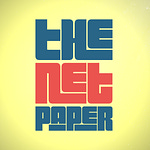

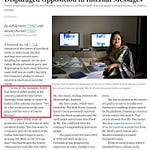
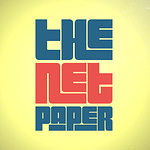

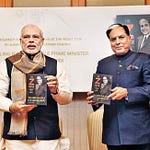

Share this post